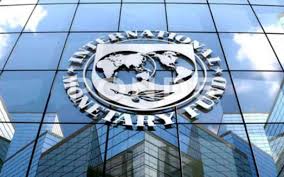An International Monetary Fund (IMF) staff team is set to arrive in Nairobi on September 25 for a two-week mission to open discussions with Kenyan authorities on a potential new IMF-supported program. The visit, which will run until October 9, will be led by Haimanot Teferra, the IMF mission chief for Kenya.
In a statement issued on Tuesday, Teferra confirmed that the talks follow a formal request from the Kenyan government for renewed financial engagement with the Fund. She said the IMF remained committed to supporting Kenya in “maintaining macroeconomic stability, safeguarding debt sustainability, strengthening governance, and promoting inclusive and sustainable growth.”
The visit comes at a critical time for the East African nation, which earlier this year missed the final review of its previous IMF program, stalling access to about $976 million in financing.
Previous IMF Arrangement Stalled
Kenya had been operating under a joint Extended Fund Facility (EFF) and Extended Credit Facility (ECF) program, approved in 2021. The arrangement was later expanded to include a Resilience and Sustainability Facility (RSF), with a total package of $3.9 billion. By early 2025, the country had drawn more than $3 billion before the program was abandoned following missed targets and fiscal challenges.
Kenya’s outstanding credit from the IMF currently stands at about $3.8 billion. The government is now seeking a new funded program that would provide balance of payments support and signal policy credibility to investors and other lenders.
Analysts note that IMF endorsement often serves as a gateway for Kenya to unlock additional concessional financing from the World Bank and bilateral partners, especially at a time when global capital markets remain expensive for frontier economies.
Key Focus of Discussions
The upcoming negotiations are expected to focus on revenue mobilization, reducing fiscal deficits, and addressing the country’s mounting debt servicing obligations. Kenya currently spends more than half of its annual revenues on debt repayments, a burden that has severely constrained public finances and limited fiscal space for development spending.
In addition, the IMF has been conducting a governance diagnostic in Kenya, with a draft assessment expected later in 2025. The diagnostic forms part of a broader set of structural reforms that could be tied to the Fund’s future engagement with the country.
Economic observers argue that any new IMF-backed program will likely come with conditions to widen the tax base, strengthen anti-corruption measures, and improve public financial management. However, these reforms could spark political resistance if they translate into higher taxes or reduced subsidies at a time when Kenyans are already grappling with a high cost of living.
Balancing Stability with Growth
If successful, the Nairobi talks could pave the way for a new arrangement aimed at stabilising Kenya’s fiscal position while sustaining economic growth and protecting social spending.
Teferra stressed that the IMF’s support would align with Kenya’s own development priorities. “Our goal is to help the authorities address fiscal and external pressures in a way that safeguards social programs and fosters inclusive growth,” she said.
For President William Ruto’s administration, securing a new IMF program is not only about short-term financing but also about signaling credibility to the international financial community. With debt repayments weighing heavily on the budget and limited access to affordable borrowing on global markets, an agreement with the IMF is seen as crucial to restoring confidence and averting a deeper fiscal crisis.
